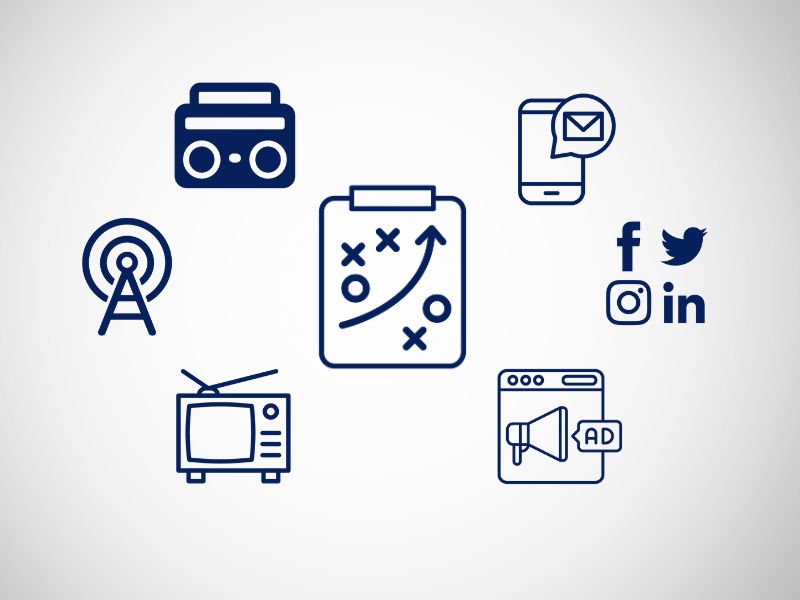.jpg)
The Secret to Successful Teams: Leveraging Individual Strengths

Harnessing Individual Talents
Planning a Birthday Party – A Scenario:
Good news: your child’s birthday is coming up. Bad news: you have to plan it. Where do you even start? There’s the question of a theme, the cake, and where should the party be? You need help.
You start with the cake. Your mom is very reliable, and loves to contribute. When you ask, she says, “Consider it done”. She suggests doing a slideshow of pictures, too. Your partner loves to stay out of the spotlight and do something more analytical. As soon as you ask, they immediately start collecting photos and digging up the projector out of the garage. Okay, it’s coming together!
Now for the theme… you ask your child, and they know right away – SPIDERMAN. You knew they’d have a positive attitude about it!
Let me give you a totally different scenario – you ask your partner to make the cake, your mom to put the slideshow together, and you come up with the theme on your own. That party would probably look very different.
What is the difference between scenarios one and two? Scenario one considers each person’s strengths to reach the common goal.
Whether you’re planning a birthday party or trying to get a digital campaign up and running, considering the team’s strengths is your best bet to get it done, and to have some fun along the way.
Do You Know Your Strengths?
Have you heard of StrengthsFinder 2.0? Psychologist Don Clifton and his team interviewed 100,000 people to develop a concise list of talents, or strengths, that can help people understand what they’re naturally good at. Instead of focusing on improving on your weaknesses, his focus was on bringing to light your natural-born talents.
If one of your strengths, or “themes”, is Empathy, you feel the feelings of others as if they’re your own. This allows you to be a great head of HR.
If your strength is Developer, you see the potential in others and strive to challenge them, help them grow, and succeed. This allows you to be a successful supervisor.
If your strength is Activator (like me), action is your main drive. Keeping the team moving forward on progress is always my focus. This is why I thrive in my role as a project manager here at Brandience.
Let’s take the theme of the birthday party – Spider-Man – and look at Peter Parker’s strengths as an example.
Spider-Man’s Strengths:
- Responsibility: Peter Parker takes his responsibilities seriously, often driven by his motto, "With great power comes great responsibility."
- Adaptability: He is highly adaptable, able to think on his feet and adjust to rapidly changing situations.
- Empathy: Peter is deeply empathetic, always looking out for others and understanding their struggles.
- Strategic: He is a strategic thinker, often planning his moves carefully to outsmart his enemies.
- Achiever: Peter is driven to accomplish his goals, whether it's in his academic pursuits or his role as Spider-Man.
Looking at all his strengths together, it’s easy to see why he’s an infamous superhero. But it makes you wonder: would he be as good at doing something else? Like being a janitor or maybe a data entry specialist? He could do these jobs, sure. He is a scientist/professor by day, after all. But someone else could probably do these jobs better, because these roles don’t play into his strengths. The roles he plays in the comics and movies – hero, scientist, teacher, researcher – all make perfect sense, and his strengths bring to light the reasons why.
“People who have the opportunity to focus on their strengths are 3 times as likely to report having an excellent quality of life, and 6times more likely to be engaged in their jobs.” – Strengths Finder 2.0
Strengths-Focused Marketing Agencies Rise Above
As a project manager, I think about the strengths of my teammates daily. It is, without a doubt, one of the most important factors to deliver beyond-awesome work. And that’s what we strive for – BEYOND awesome. Here’s why utilizing strengths benefits the entire team, each individual and, most importantly, the client.
- Better Project Outcomes: Tasks are assigned based on individual strengths, ensuring each team member is working on what they do best. This leads to higher quality work and faster turnaround times.
- Enhanced Team Collaboration: Knowing who is best at what (learning, positivity, strategy) allows us to work more collaboratively without conflicts and embrace healthy discussions.
- Motivated Workforce: Employees who use their strengths daily are more engaged and motivated, which translates to better work performance and productivity.
- Creative Solutions: A strengths-based approach allows us to look at the team holistically, ensuring we have a variety of skills and talents. Clients in turn benefit from fresh perspectives and creative problem solving.
- Trust and Reliability: Clients can trust that the agency will deliver high-quality work consistently, as tasks are handled by those best suited for them. This builds long-term, reliable partnerships.
- Adaptability: A strengths-based team has more awareness of their individual strengths, allowing them to adapt quickly to changes and apply their strengths to new situations.
Utilizing Strengths Means Happier, More Productive Teams
If there’s a task that requires creative thinking, I know just who to turn to. If I need someone who can learn a new project management tool or system quickly, I’ve got a few people in mind. And I base these decisions on their strengths.
And notice, we’re not just talking about knowing everyone’s strengths for productivity. That’s a big part of it, but it goes beyond that. We’re also talking about happiness. If a big part of your role is something you’re exceptionally good at (Ex. listening, activating a team, resolving conflict), odds are you’re going to be successful at it.
Success in your role = success for your company =happiness in your role = employee retention = continued growth = success in your role (rinse and repeat)
Moreover, a team that operates in this way is more adaptable and resilient. When everyone is working in their areas of strength, they are more likely to innovate and overcome challenges, leading to continuous improvement and client satisfaction.
Success in your team = success for your clients = trust in your partnership = long-term collaboration = mutual growth and success (rinse and repeat)
What better way to tie it all together than with a quote from Benjamin Franklin, who once said:
“Hide not your talents. They for use were made. What’s a sundial in the shade?”




